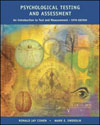Aaron T. Beck, M.D. - Tests Developed:
- Beck Anxiety Inventory
- Beck Depression Inventory
- Beck Hopelessness Scale
- Beck Scale for Suicidal Ideation
- Beck Self-Concept Test
- Dysfunctional Attitude Scale
- Sociotropy Autonomy Scale
Aaron T. Beck, M.D., University Professor of Psychiatry at the University of Pennsylvania's School of Medicine, was born in Providence, Rhode Island, in 1921. Since graduating from Yale Medical School in 1946, he has become one of the most prominent psychiatrists in the world, renowned for the development of cognitive therapy and for his pioneering research in predicting suicide. Both Brown University and Assumption College have granted him honorary doctorates, and he has received numerous awards, such as the American Psychiatric Association's Foundation Fund Prize for Research in Psychiatry and the American Psychological Association's Distinguished Scientific Award for the Applications of Psychology. He is a member of the National Institute of Medicine and a Fellow of the Royal College of Psychiatry. He has authored or co-authored 11 books and published more than 350 research and professional articles. Development of the Beck Depression Inventory When Beck began studying depression in the 1950s, the prevailing psychoanalytic theory attributed the syndrome to inverted hostility against the self. In contrast to this explanation, he observed that depressed patients might be described as having negative views of themselves, their present experiences, and their futures. Beck later proposed this negative triad as a framework for understanding the phenomenology of depression (Beck, 1967). Influences on Defining Construct The original version of the Beck Depression Inventory (BDI; Beck, Ward, Mendelson, Mock, and Erbaugh, 1961) was constructed to reflect depressed patients' own idiosyncratic descriptions of their symptoms, as opposed to those described by nondepressed psychiatric patients. Beck consolidated a collection of depressed patients' descriptions into 21 symptoms and attitudes, which could be rated on a 4-point scale ranging from 0 to 3 in terms of severity. It is important to stress that these original items were chosen to assess the severity of depression and were not selected to reflect any specific theory of depression. An amended version of the Beck Depression Inventory (BDI-IA; Beck and Steer, 1993), which eliminated the alternative wordings for the same symptoms and the double negatives in the original version, was constructed in 1971. The number of alternatives per item was reduced to three, and the wording was changed for 15 items. Several pilot versions of the BDI-IA were tested, and Beck copyrighted the final version in 1978. With the releases of the American Psychiatric Association's (1987, 1994) Diagnostic and Statistical Manual of Mental Disorders (3rd ed., rev.) and the Diagnostic and Statistical Manual of Mental Disorders (4th ed.) (DSM-IV), he upgraded the amended version to the Beck Depression Inventory, second edition (BDI-II; Beck, Steer, and Brown, 1996). He added symptoms that addressed DSM-IV criteria for major depression disorders, such as Agitation, Concentration, Difficulty, and Worthlessness. The BDI symptoms of Weight Loss, Body Image Change, and Somatic Preoccupation were dropped from the BDI-II because a series of psychometric analyses demonstrated these symptoms were less indicative of the overall severity of depression in 1996 than these same items had been in 1961. The majority of the retained BDI-II items were rewritten for clarity. Noteworthy Aspects of Test Development Process The item content for the three versions of the BDI was designed to reflect depressed patients' own descriptions of their symptoms. To obtain such symptom descriptions, Beck not only collected his own patients' descriptions but also encouraged his colleagues and students to send him their patients' statements. For more than thirty years he has led weekly seminars in which clinicians are routinely asked to contribute their patients' descriptions of how they are actually experiencing various aspects of psychopathology.In addition to developing the BDI, he has published a number of other scales for measuring different dimensions of psychopathology: Beck Anxiety Inventory, Beck Hopelessness Scale and the Sociotropy Autonomy Scale. Perspective The development of psychological tests requires much patience. Items can rarely be written without undergoing extensive revision. Numerous pilot tests have to be conducted before an acceptable instrument emerges. Even then, the adequacy of such an instrument is ephemeral, given the continuous redefining of the specific constellations that constitute certain psychiatric syndromes. A test developer must be ever-vigilant that his or her instrument reflects what patients are currently experiencing. Further, a test developer is forced to operationalize the constructs that he or she wishes to measure or change. The discipline involved in precisely determining the wording of an item, or choosing to employ a specific rating scale, affords immediate insight into the underlying nature of the psychological construct. Advice to Prospective Test Developers Future test developers are advised to ask respondents for verbatim descriptions of any psychological constructs that they wish to assess. The test development process is a tedious task, requiring much patience and endurance. There is no final edition of a test; the next version always awaits. References American Psychiatric Association. (1987). Diagnostic and statistical manual of mental disorders (3rd ed., rev.). Washington, DC: Author. American Psychiatric Association. (1994). Diagnostic and statistical manual of mental disorders (4th ed.). Washington, DC: Author. Beck, A. T. (1967). Depression: Causes and treatment. Philadelphia: University of Pennsylvania Press. Beck, A. T., and Steer, R. A. (1993). Manual for the Beck Depression Inventory. San Antonio, TX: The Psychological Corporation. Beck, A. T., Steer, R. A., and Brown, G. K. (1996). Manual for the Beck Depression Inventory, 2nd ed. San Antonio, TX: The Psychological Corporation. Beck, A. T., Ward, C. H., Mendelson, M., Mock, J., and Erbaugh, J. (1961). An inventory for measuring depression. Archives of General Psychiatry, 4, 561--571. |



 2002 McGraw-Hill Higher Education
2002 McGraw-Hill Higher Education